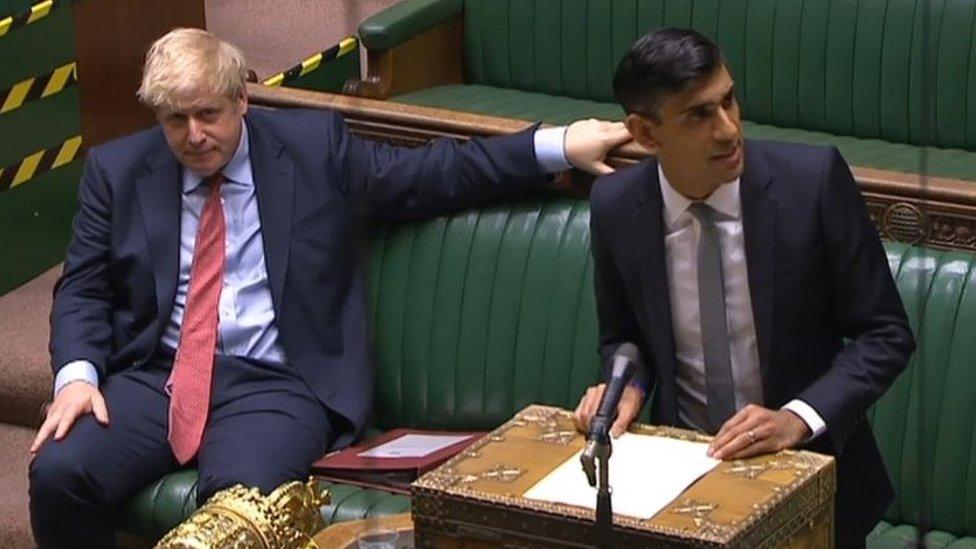Chancellor promises hope - but job fears will persist
- Published

"No one will be left without hope."
That's quite the promise from the Chancellor at a time when fears are rising of a spike in unemployment.
Jobs have already been disappearing. As expected, therefore, Rishi Sunak's priority at the despatch box was to find ways to create new jobs, and to protect others.
The new Jobs Retention Bonus, a cash payment to employers who bring staff back from the taxpayer backed furlough scheme, was the big surprise - it is a significant and potentially very expensive way of trying to get people back to work.
Bosses who bring staff back to work after they have been at home on taxpayer funded wages will get £1,000 per employee if they are still on the payroll at the end of January.
Hypothetically, it could cost up to £9bn if everyone returns to work. That seems unlikely, and it is impossible to know what the take up will be, but it is another major intervention from this Conservative chancellor.
He's prepared to spend as much as £30bn by the time you include the other measures he confirmed - cuts to stamp duty, VAT in the hospitality sectors down to 5%, a scheme to create jobs for young people that might have a price tag of £2bn. Spending on infrastructure was accelerated too and don't forget an 'eat out to help out' scheme where customers will get discounts on their social life (although not including alcohol) courtesy of the Chancellor - insert pun here.
Don't let excitement about a few cheap burgers (only Monday to Wednesday) distract you from what this is about.
The Chancellor has just outlined another hefty chunk of spending to try to prop up the economy, specifically to try to keep millions of people from joining the dole.
Many of the measures run against traditional Tory instincts. And there isn't a whiff of how any of it will be paid for for at least another couple of months.
But that's against the background of the sharpest decline in the economy in generations, with the fortunes of what will actually happen next dependent on the progress of a deadly disease.
The opposition parties already suggest that the scale of what the government is proposing falls short of what will be required.
Rishi Sunak admitted in his statement "our plan will not be the last - it is the next", knowing full well that the profound economic impact of the coronavirus crisis is far from passed.
